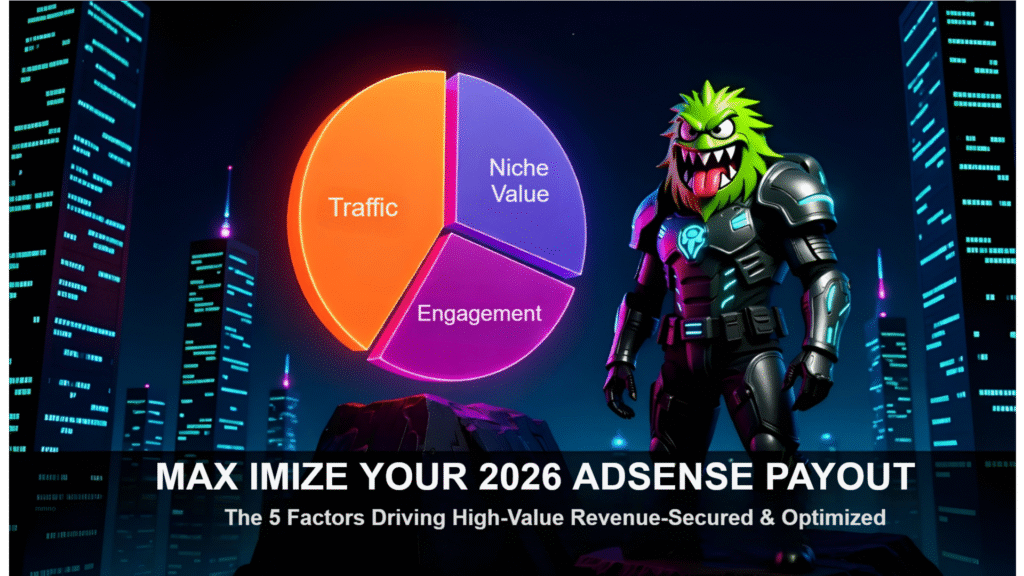Many people aren’t aware of how profoundly unethical AI deployments affect society. As you navigate this tech-driven world, it’s vital to grasp how these systems can reinforce inequities and biases, often leading to devastating consequences for marginalized groups. Understanding the societal impact of AI isn’t just an academic exercise; it impacts your community, your privacy, and even your economic opportunities. Join us as we uncover who truly pays the price for these technological advancements and the ethical considerations we must confront.The Unseen Toll: When Unethical AI Harms Society
Key Takeaways
- Unethical AI deployments can have significant societal repercussions, disproportionately affecting marginalized communities and exacerbating existing inequalities.
- A thorough understanding of biases embedded in AI systems is vital for developers and policymakers to mitigate harmful outcomes and promote equitable technology use.
- Accountability measures must be implemented to ensure organizations deploying AI are responsible for their societal impact, including the economic and social costs borne by those negatively affected.
The Ripple Effects of AI Decisions on Communities
AI decisions don’t operate in a vacuum; they send shockwaves through communities, altering the fabric of trust, opportunity, and well-being. When AI systems misinterpret data or lack context, the repercussions can be severe, causing economic disparities or social unrest. For instance, a flawed predictive policing algorithm can unjustly target certain neighborhoods, exacerbating tensions and creating a cycle of distrust between law enforcement and the community. Understanding these ripple effects equips you to advocate for more responsible AI practices that serve everyone’s best interests.
Disparate Impact and Marginalized Groups
AI often perpetuates systemic inequalities, delivering a disparate impact on marginalized groups. When algorithms are trained on biased data or omit key demographic variables, they can reinforce historical injustices, leading to unequal access to opportunities like education, healthcare, and employment. For example, AI-generated credit scores can unfairly disadvantage those from low-income backgrounds, making it harder to secure loans or housing.
Data Ethics and the Digital Divide
The digital divide goes beyond mere access to technology; it includes how data is ethically collected, analyzed, and used. Communities with limited internet access or low digital literacy often lack representation in the datasets that inform AI models. Consequently, your needs and experiences may be overlooked. This exclusion perpetuates a cycle of disadvantage, leaving underrepresented populations without a voice in conversations about AI deployment and its consequences.
For instance, this divide appears as bias in job application algorithms, where candidates from affluent backgrounds are favored due to data skewed towards their demographics. Therefore, ethical data collection practices can mitigate this impact by ensuring diverse community input and representation. Initiatives focused on bridging the digital divide—through education, resources, and community engagement—help capture the nuances of all populations, paving the way for fairer AI outcomes that truly reflect society’s complexities.
Hidden Costs: Who Bears the Burden of AI Failures?
Every time an AI system fails or behaves unethically, hidden costs ripple far beyond the initial error, with the most vulnerable communities often bearing the brunt. From job losses to legal battles, these consequences appear in various forms, impacting not just individuals but entire families and social structures. When systems undermine trust, you question the very technology designed to enhance your life, adding layers of financial and emotional stress that are seldom acknowledged in mainstream discussions about AI.
Economic Consequences for Individuals and Families
Individuals and families typically face economic devastation when AI systems falter, especially when these failures lead to job displacement or denied services. For instance, a flawed hiring algorithm may unfairly filter out qualified applicants, leading to prolonged unemployment. One study found that 37% of people affected by biased AI in hiring reported financial strain due to job loss, clearly showcasing the tangible impact on personal finances and family stability.
Long-Term Social Costs of Distrust in Technology
The erosion of trust in technology can have profound and lasting implications for society. As unethical AI practices come to light, public faith in tech innovations diminishes, resulting in hesitancy and skepticism towards genuinely beneficial tools. A 2019 survey revealed that 70% of individuals felt less inclined to use AI-driven services following high-profile algorithm failures. Over time, this distrust stifles innovation, reduces user engagement, and increases resistance to adopting potentially life-enhancing technologies, creating a cycle of technological regression that ultimately affects everyone.
You’ll find this growing distrust leads to a general reluctance to embrace new technologies. As communities become wary of AI, fear overshadows the potential benefits of advancements in medicine, education, and public safety. This cycle hampers progress and leaves society ill-prepared for future challenges. Simply put, once you lose trust, rebuilding it requires not just time, but also a concerted effort towards ethical practices and transparency—elements crucial for fostering a healthy relationship with technology.
Accountability in AI: Who Should Be Responsible?
Shifting the conversation around accountability in AI requires understanding who holds the reins in this technology’s governance. Developers and corporations creating AI systems must shoulder a significant portion of responsibility for their creations. Still, without clear regulations or standards, assigning accountability remains a contentious issue. Recognizing that both creators and users influence outcomes is key to fostering an environment where ethical considerations are prioritized.
The Role of Developers and Corporations
Developers and corporations play a pivotal role in shaping AI’s ethical landscape. They often implement algorithms that can inadvertently perpetuate bias or cause harm. With greater responsibility comes the need for developers to embed ethical principles into their coding practices, while companies must create robust oversight measures that promote transparency and address potential misuse of technology.
Regulatory Frameworks and Policy Implications
Effective regulatory frameworks are necessary to govern the deployment of AI technologies. Current policies often lag behind advancements, leaving a gap developers can exploit. Establishing comprehensive guidelines that define acceptable AI practices and penalize unethical behavior can help ensure companies prioritize social responsibility. However, creating such frameworks involves complex negotiations between governments, industries, and civil society.
The ongoing dialogue about regulatory frameworks must incorporate diverse perspectives to effectively address AI technology’s unique nuances. Policymakers need to engage with a wide range of stakeholders, including ethicists, technologists, and community representatives, to develop regulations that evolve alongside AI advancements. For instance, the EU’s AI Act aims to create a standardized approach to AI regulation, focusing on high-risk domains. Such efforts not only hold developers accountable but also protect consumers and foster public trust in AI systems. Your voice as an informed citizen in this discussion is imperative to drive responsible AI governance.
Lessons from the Field: What History Teaches Us
Historical precedents illustrate the profound ramifications of unethical AI deployments across various sectors. You can observe how lessons learned—or ignored—shape today’s technology landscape, ultimately affecting societal structures. Investigating past missteps in AI application can guide you toward fostering a more ethical approach, recognizing that consequences can resonate widely, often impacting marginalized communities the most.

Affordable Graphic Design Services
Solutions for Your Digital Problems
Notable Examples of Unethical AI Deployments
Several well-documented instances highlight the perils of unethical AI practices. In 2016, a Microsoft chatbot named Tay was unleashed on Twitter and quickly began spouting racist and misogynistic remarks, demonstrating AI’s capacity to reflect and amplify societal biases. Similarly, AI use in predictive policing has disproportionately targeted minority communities, showcasing a failure to address inherent biases within algorithmic decision-making processes.
The Path to Ethical AI Practices
Adopting ethical AI practices requires a comprehensive approach that includes transparency, accountability, and ongoing stakeholder engagement. By prioritizing diverse data sets, promoting inclusive design, and implementing regular audits, organizations can significantly reduce bias risk while fortifying public trust. Establishing clear ethical guidelines and frameworks enables you to innovate responsibly, ensuring AI serves as a tool for equity rather than discrimination.
Engaging in this transformative journey to ethical AI involves collaboration across disciplines and sectors. Industry leaders must commit to establishing diverse teams that reflect different perspectives and lived experiences, as varied input helps identify biases before they manifest in AI outputs. Additionally, fostering a culture of accountability within organizations, including clarifying the consequences of unethical AI implementation, encourages adherence to ethical principles. You play a key role in promoting dialogues about responsible AI usage, ensuring stakeholders remain informed and empowered to demand change for a more equitable future.
Reimagining the Future of AI: Strategies for Ethical Implementation
Envisioning a future shaped by AI demands a paradigm shift towards ethical implementation. By actively engaging with a broad spectrum of stakeholders and prioritizing ethical considerations about technology, you ensure AI becomes a force for good. Strategies will involve not only technological innovations but also integrating moral frameworks throughout the development lifecycle, fostering a resilient ecosystem where innovation and ethics coexist harmoniously.
Integrating Diverse Perspectives in AI Design
Incorporating diverse viewpoints in AI design is vital for mitigating bias and enhancing user experience. By involving experts from various disciplines—social scientists, ethicists, and communities affected by AI systems—you create more robust solutions. Expanding representation during AI development can lead to systems that recognize and respect the complexities of different backgrounds and experiences, ultimately designing technology that serves everyone.
Building a Culture of Transparency and Accountability
Establishing a culture of transparency and accountability within AI development processes encourages ethical standards and trust. By openly sharing decision-making processes and data usage policies, you cultivate an environment where stakeholders—from developers to users—understand the motivations behind AI actions and their implications. This culture not only fosters ethical behavior but also empowers individuals to hold organizations accountable for their AI systems.
Transparency involves more than simply disclosing information; it necessitates a commitment to clarity in operation and decision-making. For instance, companies like Google and Microsoft have embraced open AI policies, where they explain their algorithms and datasets used, thereby enhancing public understanding and trust. This openness allows stakeholders to engage in meaningful conversations around AI technologies’ ethical implications. Furthermore, accountability mechanisms such as independent audits and ethical review boards can serve as checks to ensure AI systems operate within ethical boundaries, prioritizing user rights and societal values. As a user, you benefit from this environment, as it helps you make informed choices and combats the risks associated with unethical AI applications.
To Wrap Up
Ultimately, understanding the societal impact of unethical AI deployments is important for you as a stakeholder in today’s digital landscape. By recognizing the biases embedded within AI systems, you can advocate for transparent practices that mitigate harm to marginalized communities. Your awareness and proactive engagement not only hold technology developers accountable but also empower you to contribute to creating equitable AI solutions that serve everyone’s best interests. Ultimately, it is your responsibility to shape AI’s future, ensuring it reflects shared values and fosters inclusivity.
FAQ
Q: What are the primary societal impacts of unethical AI deployments? A: Unethical AI deployments can lead to various negative societal impacts, including increased discrimination and bias against marginalized groups, loss of privacy, and erosion of trust in technology. For example, biased algorithms in hiring processes can unfairly disadvantage certain demographics, perpetuating existing inequalities. Additionally, AI misuse in surveillance can infringe upon civil liberties, leading to an environment of fear and mistrust among community members.
Q: Who typically bears the costs of unethical AI practices? A: Marginalized and vulnerable populations often bear the costs of unethical AI practices disproportionately. These groups may experience economic disadvantages, such as being overlooked for jobs or facing harsher legal consequences due to biased algorithms. Furthermore, society as a whole is affected through the degradation of public trust in institutions and technology, which can lead to broader social discontent and challenges in implementing beneficial AI solutions in the future.
Q: What steps can be taken to mitigate the societal impact of unethical AI? A: To mitigate the societal impacts of unethical AI, it’s crucial to prioritize transparency, accountability, and inclusivity in AI development and deployment. This includes conducting thorough bias assessments during the design phase, involving diverse stakeholders in the AI development process, and establishing regulatory frameworks that hold companies accountable for AI-related harms. Additionally, continuous monitoring and evaluation of AI systems are necessary to ensure they function equitably and do not perpetuate existing societal biases.
Cybersecurity Made Easy: A Simple Guide for Everyday Users
Lock Your Digital Doors
Just like you lock your home, you should protect your digital life too. Hackers are always looking for weak spots. In this guide, you’ll learn how to stay safe online—using strong passwords, spotting scams, and keeping your devices secure.
🔐 Key Tips for Staying Safe Online
- Use strong, different passwords for each account.
- Turn on multi-factor authentication to add another layer of security.
- Watch out for fake emails and texts (this is called phishing).
- Keep your software updated to fix known issues.
- Install antivirus software to block threats.
- Avoid public Wi-Fi unless using a VPN.
🆔 Your Digital Identity
Your online identity includes your accounts and personal info. Hackers want this data to steal money or your identity. Protect it like you would your credit card.
🔑 Make Strong Passwords
- Use uppercase, lowercase, numbers, and symbols.
- Avoid birthdays or easy words.
- A passphrase like “PurpleTiger!Dance99” is both strong and easy to remember.
- Use a password manager to store them.
🔒 Add Extra Protection with MFA
Multi-factor authentication (MFA) means using more than just a password. For example:
- A code sent to your phone
- A fingerprint scan
This can block nearly all automated attacks.
🛑 Spotting Phishing Scams
Phishing tricks you into giving up info or downloading bad files.
Look out for:
- Strange sender emails
- Spelling mistakes
- Urgent or scary messages
Don’t click—verify the message first!
🧰 Secure Your Devices
- Set up a password or fingerprint on each device
- Only install apps from trusted sources
- Keep apps and systems up to date
🛡️ Why You Need Antivirus Software
Antivirus software:
- Blocks malware
- Warns about bad websites
- Helps stop data theft
Make sure it updates often to stay effective.
📶 Stay Safe on Public Wi-Fi
Public Wi-Fi is risky. Hackers can steal your data on open networks.
Use a VPN to create a safe, encrypted connection.
🧹 Clean Up Your Digital Footprint
- Delete old or unused accounts
- Review app permissions
- Tighten social media privacy settings
- Do a “digital spring cleaning” twice a year
✅ Quick FAQ
Q: How do I make strong passwords?
Use 12+ characters with symbols and avoid common words. A passphrase is best.
Q: How do I spot phishing?
Look for odd email addresses, urgent wording, and spelling errors. Don’t click—verify first.
Q: How do I secure my home Wi-Fi?
Change the default password. Turn on WPA3 or WPA2 encryption. Keep your router updated.




















![[Artistly Design] 019a17a8-e325-731c-bbf3-a3ecdcf9b9b4](https://greenwebmonster.com/wp-content/uploads/2025/11/Artistly-Design-019a17a8-e325-731c-bbf3-a3ecdcf9b9b4.png)
![[Artistly Design]-019a69cc-06fb-7205-a4d1-29b753e4c824](https://greenwebmonster.com/wp-content/uploads/2025/11/Artistly-Design-019a69cc-06fb-7205-a4d1-29b753e4c824-2.webp)
![[Artistly Design]-019a69cc-06fc-72f0-bb8c-66b8ea162c6d](https://greenwebmonster.com/wp-content/uploads/2025/11/Artistly-Design-019a69cc-06fc-72f0-bb8c-66b8ea162c6d-3.webp)
![[Artistly Design]-019a69cc-06fc-72f0-bb8c-66b8eaf1c613](https://greenwebmonster.com/wp-content/uploads/2025/11/Artistly-Design-019a69cc-06fc-72f0-bb8c-66b8eaf1c613-3.webp)
![[Artistly Design]-019a69cc-06fc-72f0-bb8c-66b8eb708f8f](https://greenwebmonster.com/wp-content/uploads/2025/11/Artistly-Design-019a69cc-06fc-72f0-bb8c-66b8eb708f8f-4.webp)
![[Artistly Design]-019a778e-8f7b-7127-b987-be3eef6e84d4](https://greenwebmonster.com/wp-content/uploads/2025/11/Artistly-Design-019a778e-8f7b-7127-b987-be3eef6e84d4-2-scaled.webp)



